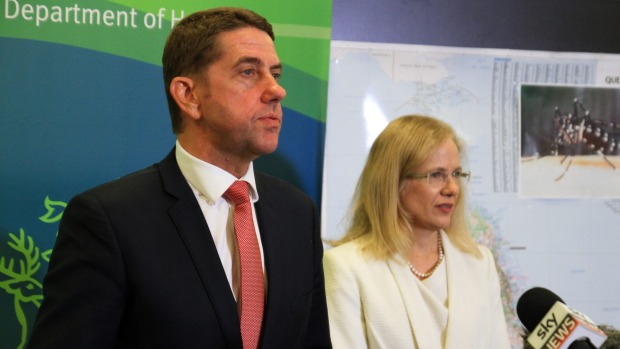
Queensland Health is boosting its Zika monitoring and management program by $1.4 million, including a $400,000 expansion of Townsville testing facilities where the risk of infection is greatest.
The expanded, more rapid testing program, to begin on March 1, was announced as health authorities confirmed a second positive test for the virus in Queensland.

A Brisbane child admitted to hospital for testing on Thursday was confirmed on Saturday as Queensland’s second case of Zika infection this year.
State Health Minister Cameron Dick told a Brisbane media conference the child, who was recovering welland in no danger, was the second Zika case this year.
“The child returned from Samoa with his family,” Mr Dick told a media conference on Saturday. Earlier tests conducted on a Gold Coast woman returned positive after she saw a doctor in December. The woman fell ill after a trip to El Salvador. Her tests returned on Saturday also.
Queensland had seven Zika cases in 2014 and three cases in 2015.
“We are able to identify and treat the virus and ensure that the virus does not spread,” he said. “The system works.”
GPs, obstetricians and other health professionals have been told to vigilantly test people who report symptoms including: red itchy eyes, headache, skin rash, joint pain, fever and a lack of energy.
Queensland Health will spend $1 million on a statewide, public health campaign informing people of the best ways to prevent the spread of the virus into Australia, he said.
The public health campaign will particularly target expatriate communities from those parts of the world where Zika was endemic.
Queensland’s Chief Health Officer Jeannette Young said the Zika-carrying mosquito could potentially move into north Queensland.
“Zika has been in the Pacific for decades, this is new to Brazil,” she said. People in Brazil have not been exposed to the virus before and so had no immunity.
“It’s not surprising to me that this child has picked it up in Samoa,” Ms Young said. The World Health Organisation had recognized the outbreak as internationally significant to ensure the risks of the virus evolving were properly researched, she said.
“It’s so important that people in north Queensland come forward quickly with symptoms,” she said. Someone infected with the virus needed to remain in an ai-conditioned room to avoid being bitten by mosquitoes which could transmit the disease in the seven-day infectious period.
“There’s no risk of transmission on the Gold Coast or in Brisbane because we don’t have this particular mosquito here,” Ms Young said.
However, north Queensland residents were at risk. This mosquito liked to live indoors, in dark places, such as under beds and other furniture so Queenslanders are being urged to take action to prevent mosquitoes from breeding around their homes.
